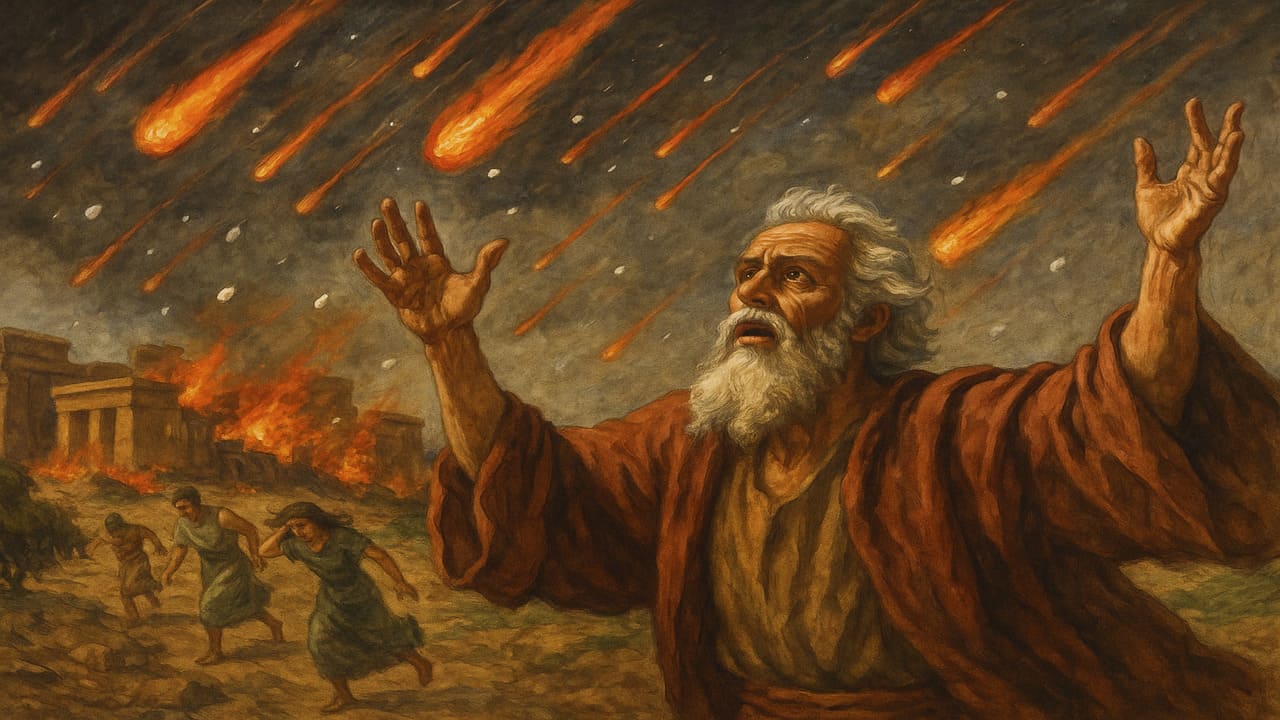
Thorn Ville Church – The story of the Ten Plagues of Egypt stands as one of the most dramatic and powerful narratives in the Bible. Found in the book of Exodus, this ancient account reveals a spiritual struggle not only between a stubborn king and a determined prophet but also between earthly power and divine will. Through a sequence of increasingly severe judgments, God demonstrates His supremacy over Pharaoh, Egypt’s gods, and even nature itself.
The plagues were not random catastrophes. Each was purposeful, symbolic, and meant to compel Pharaoh to release the Israelites from slavery. They formed a sequence that unfolded with rising intensity, ultimately reshaping the destiny of a people who had long suffered under oppression.
The story begins with God calling Moses, a Hebrew raised in Pharaoh’s palace, to return to Egypt after years in exile. His mission was clear: to lead the Israelites out of slavery and into freedom. Yet Moses was not to rely on his own strength. God would perform signs and wonders to persuade Pharaoh, who repeatedly hardened his heart.
When Moses first approached Pharaoh with the simple request “Let my people go” the Egyptian king flatly refused. What followed was a dramatic series of confrontations, as Moses warned Pharaoh that refusal would bring devastating consequences. Pharaoh’s arrogance and political will clashed with God’s divine plan. What began as a diplomatic request soon turned into a full spiritual battle.
As each plague descended, Pharaoh would briefly relent, only to change his mind once the immediate threat passed. This cycle of resistance became a recurring theme, revealing not only the pride of Egypt’s ruler but also the patience and persistence of God’s purpose.
Also Read : The Resurrection: A Story of Triumph, Hope, and Eternal Life
The Ten Plagues were unleashed one after another, each targeting aspects of Egyptian life, nature, or belief:
Each plague was more than a physical judgment; it was a direct challenge to the Egyptian pantheon of gods. For example, the Nile was worshiped as a god, the sun god Ra was believed to sustain life, and the livestock were sacred symbols. God’s plagues revealed the impotence of these deities and the supreme authority of the Lord of Israel.
The plagues weren’t merely punishments they were signs of God’s active presence and justice. They revealed His desire for obedience, both from Pharaoh and the Israelites themselves. Before the final plague, the Hebrews were commanded to observe the first Passover, marking their doors with lamb’s blood so the angel of death would pass over their homes.
This moment would later become a foundational tradition in Jewish faith, symbolizing deliverance, protection, and covenant. It also introduced the theme of sacrifice and redemption, which would echo throughout later scriptures, especially in Christian theology.
Throughout the ordeal, Moses’ obedience stands in contrast to Pharaoh’s rebellion. Moses had once doubted himself, even protested his own calling, but his journey from reluctance to faithful leadership mirrors the transformation God seeks in His people trust, humility, and courage in the face of power.
Read More : Under Attack: AI Cyber Threats Escalate Across Asia Pacific
Though set in ancient Egypt, the story of the Ten Plagues continues to speak to modern hearts. It is a story about liberation from oppression, about the consequences of hard-heartedness, and about the lengths to which God will go to defend His people.
For believers today, the plagues are more than just historical judgments; they are spiritual metaphors for the struggles of life. Sometimes, hearts must be softened through hardship. Other times, deliverance comes through faithful obedience rather than personal strength. And always, the power of God surpasses that of any earthly king.
Thornville Church - Your Source for Biblical Inspiration - ancient churches spreading gospel were foundational in establishing the early Christian…
Thornville Church - Your Source for Biblical Inspiration - early church ruins significance spiritual remains a profound chapter in the…
Thornville Church - Your Source for Biblical Inspiration - Exploring the oldest places Christian worship offers profound insight into the…
Thornville Church - Your Source for Biblical Inspiration - Thousands of visitors journey each year to historic religious sites believed…
Thornville Church - Your Source for Biblical Inspiration - Long term fitness planning now determines how strong, mobile, and independent…
Thornville Church - Your Source for Biblical Inspiration - Ancient Christian pilgrimage destinations are reshaping ancient christian faith education by…